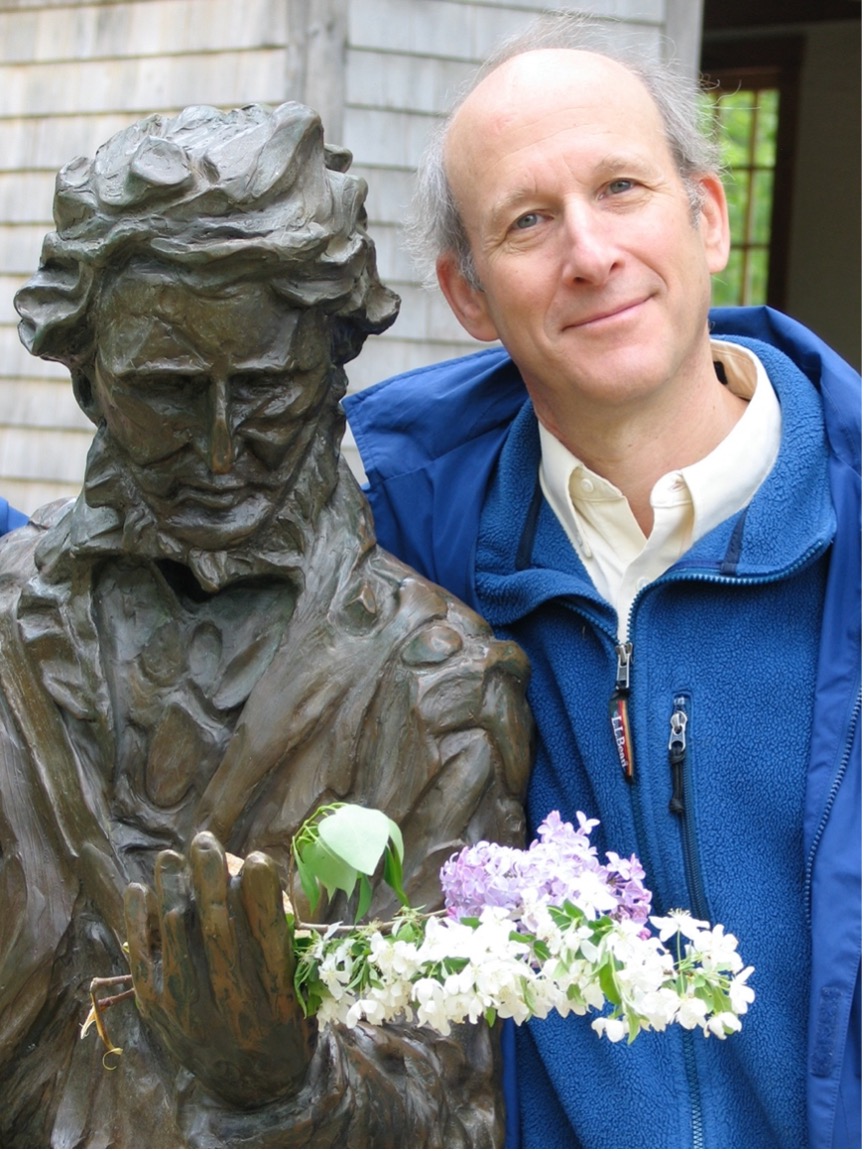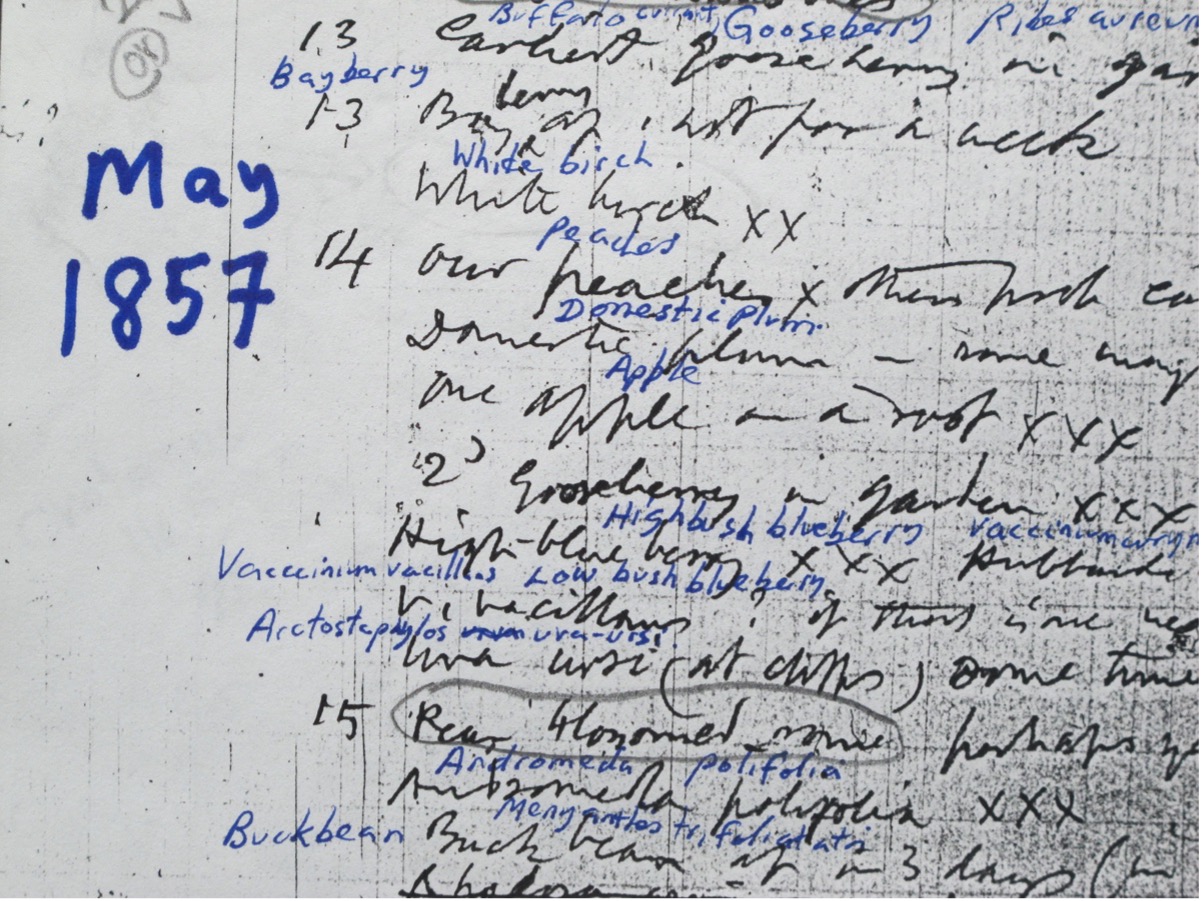By Richard B. Primack
“The first sparrow of the spring! The year beginning with younger hope than ever!” Thoreau in Walden. p. 310.
Henry David Thoreau was a climate change scientist! For eight years in the 1850s, Thoreau recorded the timing of flowering and leafing out of plants and the spring arrival of birds while walking around Walden Pond and Concord. Our research group and other naturalists have since added to this remarkable collection of observations. As a result, Concord has become one of the most intensively studied locations in the world and an iconic example for how climate change has affected plants, birds, and ecosystems.
We have recently published this compiled dataset and made it publicly available in the journal Ecology.
 |
| Richard Primack posing next to the statue of Thoreau at Walden Pond around 15 years ago. |
Our papers based on this data set have demonstrated that warmer temperatures have caused plants to flower and leaf out as much as two weeks earlier than when Thoreau observed, but birds have changed much less. Also, trees may be responding more rapidly than wildflowers to spring warming, and wildflowers may be getting shaded out.
By publishing this paper, we are encouraging other scientists and student to investigate climate change in new ways, and to connect with the life of Thoreau.
The article is available at: https://esajournals.onlinelibrary.wiley.com/doi/abs/10.1002/ecy.3646

No comments:
Post a Comment